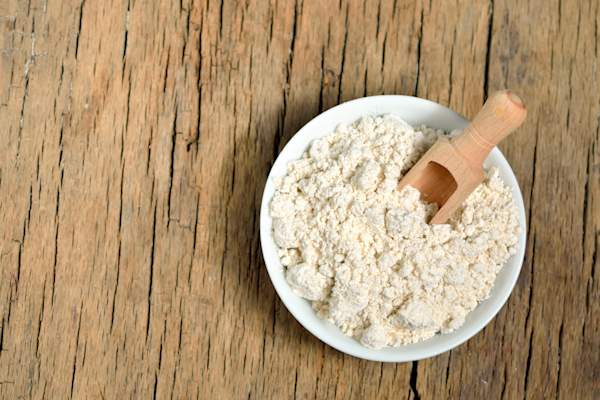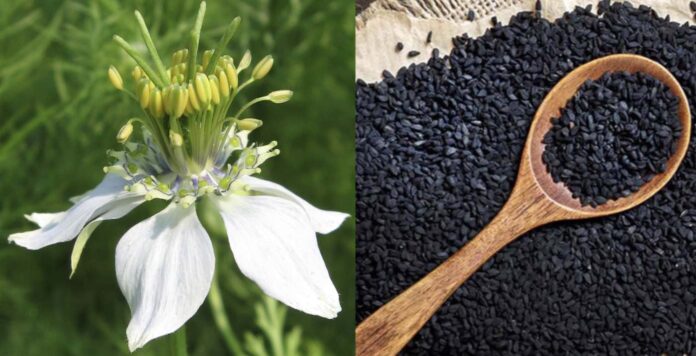The FINANCIAL -- According to Johnson & Johnson, cold temps and dry air can wreak havoc on already stressed skin. For those with certain inflammatory skin diseases, Lloyd S. Miller, M.D., Ph.D., says following a personalized treatment plan is the key to finding more comfort this season
Frequent hand washing and sanitizer use may already be taking a toll on your hands this pandemic year, but as temps and humidity levels drop come winter, other body parts can also get itchy, cracked and irritated. And while many people may develop dry skin this winter, those who have eczema or psoriasis will have to do more than simply slather on extra lotion and drink more water. "Psoriasis and eczema are inflammatory skin diseases," says Lloyd S. Miller, M.D., Ph.D. Vice President of Immunodermatology for Janssen Research & Development, part of the Janssen Pharmaceutical Companies of Johnson & Johnson.

In the case of psoriasis, a hyperactive immune response causes new skin cells to proliferate more quickly than old ones can be shed. The result is that cells pile up on top of each other, causing red patches with silvery scales.
Eczema, also known as atopic dermatitis, is considered an allergic disease, meaning the body overreacts to an external trigger, such as dust mites or perfumes in cosmetics and soaps. "Patients develop itchy, red skin, often in areas where skin touches skin, such as in the bends of the arms or knees," Dr. Miller says. It's prevalent in kids, especially those who also have, or will later develop, food allergies, seasonal allergies or allergic asthma.
As winter officially sets in, we asked Dr. Miller to share more about the causes, triggers and symptoms of psoriasis and eczema—and offer advice about how to help keep both in check.
Q: Many people confuse psoriasis and eczema. How can you tell the difference?
A: It's actually pretty easy for dermatologists to know which one they're seeing: Eczema is typically less thick and patchy compared to psoriasis, and eczema patients frequently have scratch marks because the condition is so incredibly itchy.
Sometimes skin with eczema is covered with honey-coloured crusts; that happens because there's so much yellowish staph bacteria on it, and the bacteria produce toxins that cause disease flares. Everyone has staph on their skin, but people with eczema have 100 to 1,000 times more of it than normal.
Psoriasis can crop up anywhere on the body, but it mostly impacts elbows, knees, the lower back and scalp. Because psoriasis is an autoimmune disease, people who have it experience increased inflammation throughout their body. About 30% of people with psoriasis also develop a type of inflammatory arthritis called psoriatic arthritis. Psoriasis patients, regardless of whether they have joint problems, also have a higher than average risk of cardiovascular disease and diabetes.
Q: Why do these conditions typically flare up in the winter?
A: Cold, dry conditions sap the natural moisture from your skin, and dry skin can cause flares, especially with eczema. People also tend to take hot baths or showers in the winter, which further dries out the skin and causes more itching, since hot water can damage the outer layer of skin that holds in moisture.
Dry skin can also trigger a psoriasis flare, as can reduced exposure to sunlight. In the winter, most people get very little natural exposure to UV light because they spend so much time indoors or with skin covered up with warm clothing. To help with this, psoriasis patients can consider phototherapy, a treatment that essentially involves using a light box to expose skin to controlled amounts of UV light in order to dampen inflammation.
Q: Can lifestyle changes help?
A: Lifestyle changes alone probably won't be enough to completely address symptoms, especially when it comes to psoriasis, since it is a chronic autoimmune disease. But because dryness is a trigger for both psoriasis and eczema, you can certainly reduce your risk of having a flare by taking shorter, lukewarm showers and applying a thick, hydrating cream or ointment right after you towel off. That will help lock in moisture, as well as repair the skin barrier, which is important because cracked and irritated skin allows more irritants and allergens to get in.
If you have eczema, it's really important to use fragrance-free, hypoallergenic soap and moisturizers, as fragrances can cause allergies and further trigger itchiness and inflammation.
You should also use scent-free hypoallergenic laundry detergent for the same reason. Certain fabrics, such as those made with wool, may be irritating to delicate skin as well. If your indoor air is very dry it's also a good idea to run a humidifier. Just be sure to clean it often to avoid a build-up of mould or bacteria.
Q: What about prescription treatments?
A: It really depends on the patient and how severe their condition is, which is why personalization is so key.
For some people with eczema, over-the-counter products may be sufficient. But many people with even mild eczema, which affects less than 10% of the body, typically need to use a prescription topical corticosteroid or topical calcineurin inhibitor—both of which work to reduce inflammation—on occasion.
Many people with even mild eczema, which affects less than 10% of the body, typically need to use a prescription topical corticosteroid or topical calcineurin inhibitor—both of which work to reduce inflammation—on occasion. Those with moderate to severe eczema may require oral or biologic medications that suppress inflammation throughout the body to provide some level of relief. New treatments may also be on the horizon: Janssen, for example, is currently studying a potential treatment for eczema that targets keratinocytes—an inflammatory protein produced by skin cells that's released when you scratch.
Psoriasis almost always requires prescription treatment because of the underlying autoimmune disease, but the best option varies depending on how much of the skin is impacted. Some psoriasis patients with very mild disease can rely on topical corticosteroids or a topical anti-inflammatory vitamin D analog, which is a synthetic form of vitamin D.
Those with more advanced disease or who have psoriatic arthritis typically need to take a prescription medication. One such option is a biologic drug. If you may need one, your doctor will try to select the best option by factoring in the severity of your skin disease, whether you also have joint disease, how often you're willing to do injections and other factors.
All this is to say that for people living with psoriasis or eczema there are a variety of options to reduce symptoms—even during the tougher winter months.
https://www.finchannel.com/society/health-beauty/79689-winter-skin-know-how-why-do-psoriasis-and-eczema-flare-up-in-winter



:strip_exif(true):strip_icc(true):no_upscale(true):quality(65)/cloudfront-us-east-1.images.arcpublishing.com/gmg/AOGJS4UJLNHOZGD3RPXMNSEB3Y.jpg)






